Transfer Mechanics: Alberto Contador into retirement
Guercilena on the Spaniard's decision and Trek-Segafredo's approach
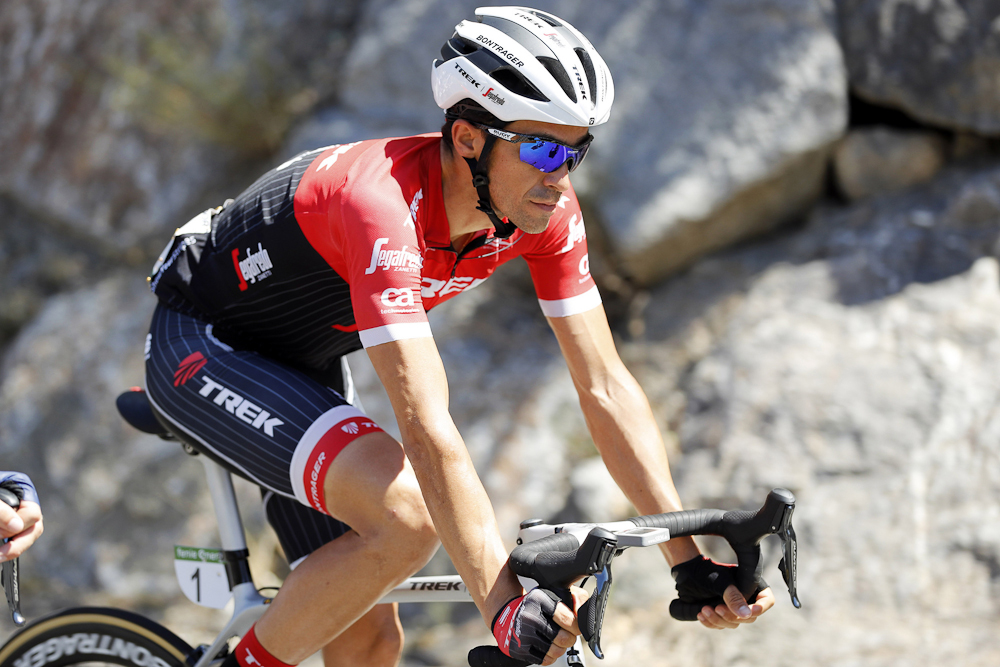
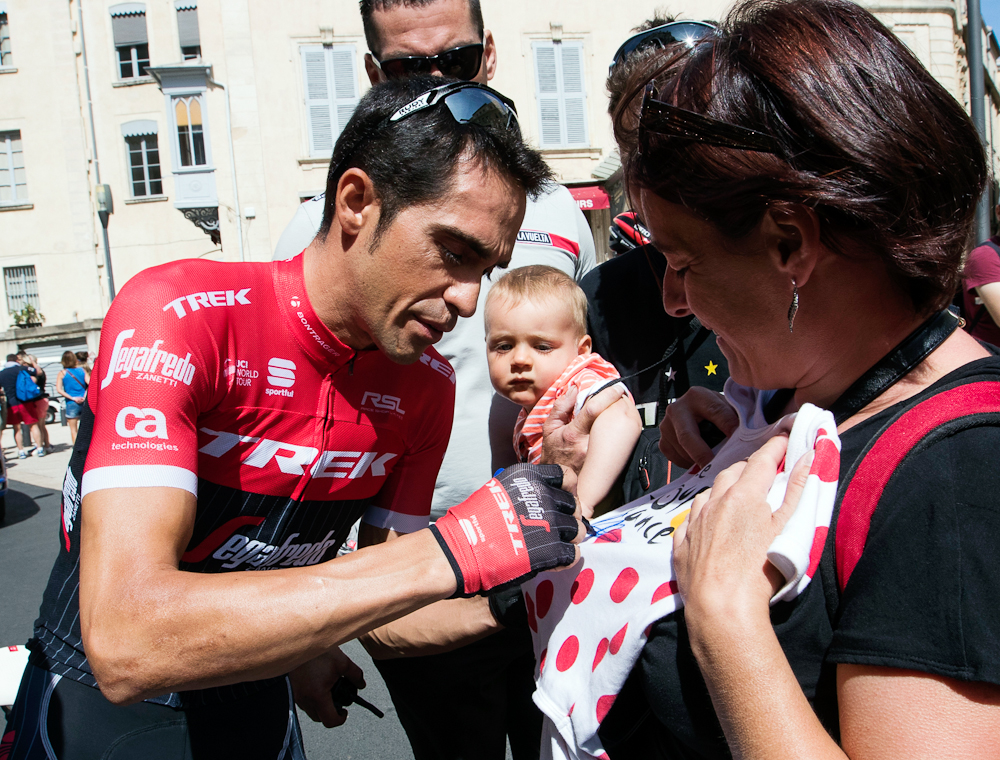
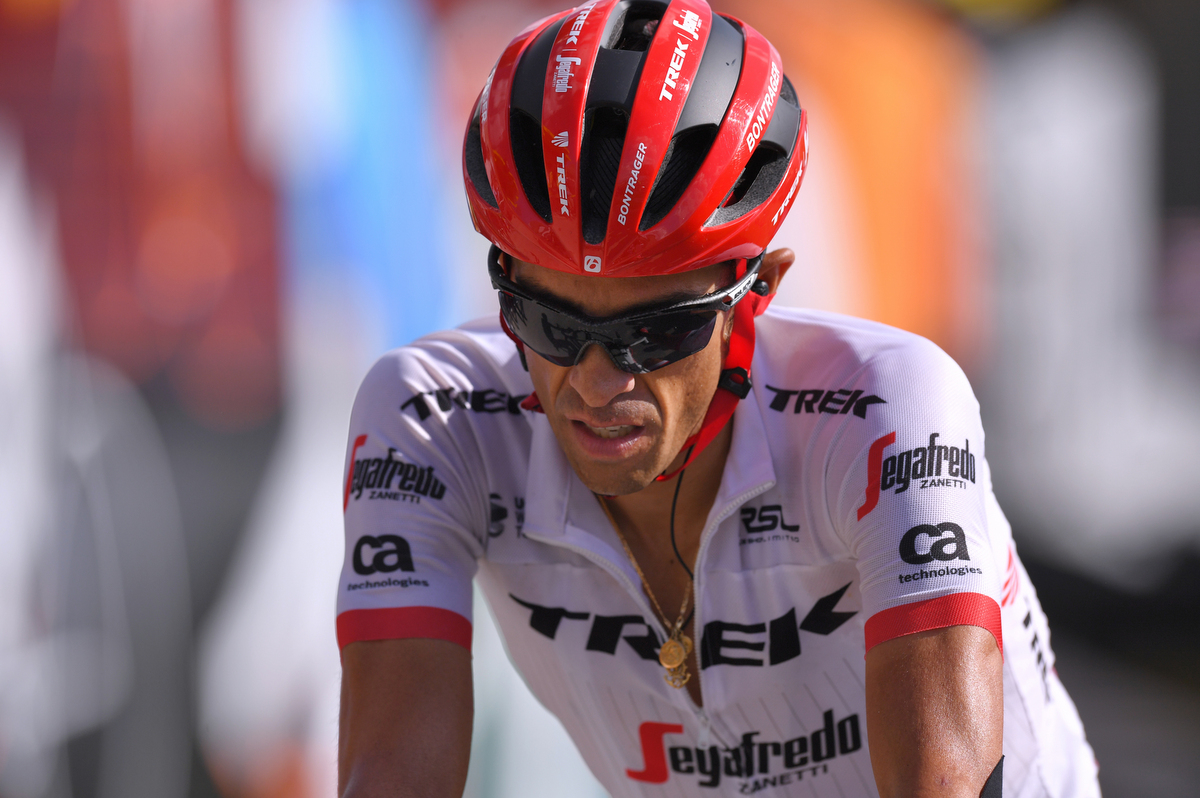
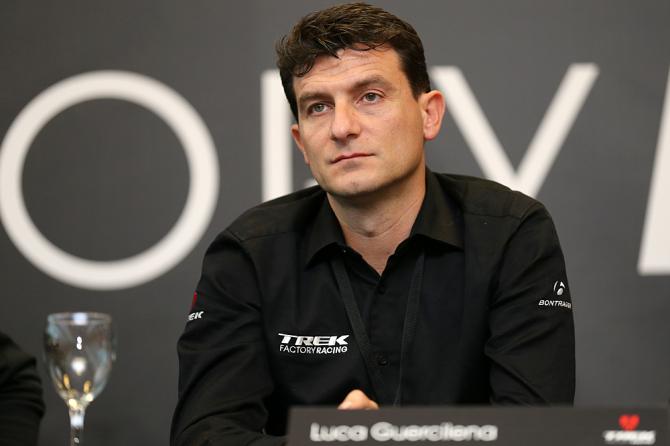
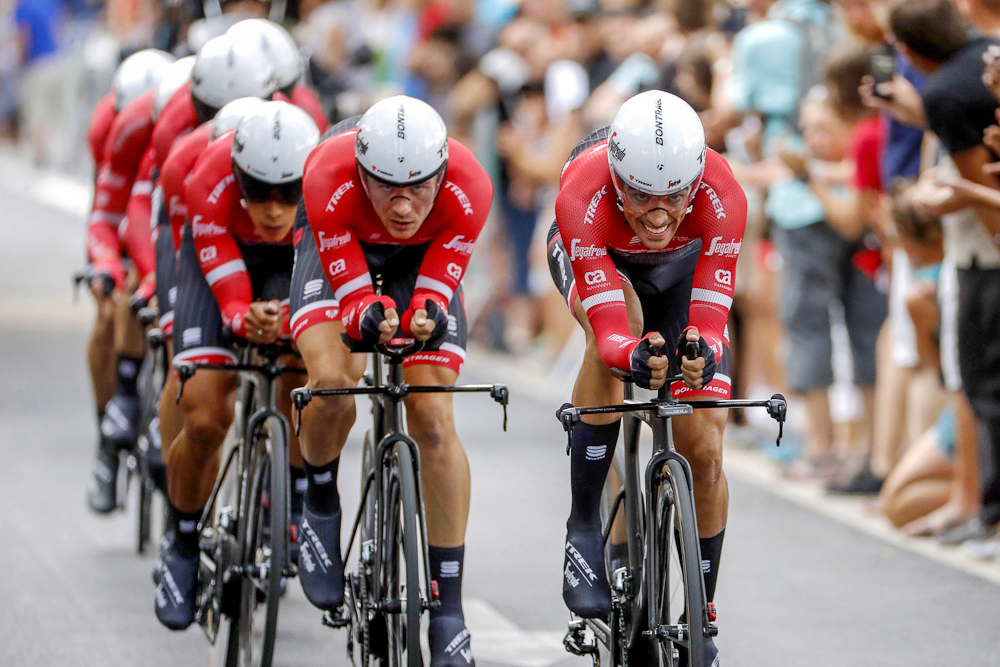
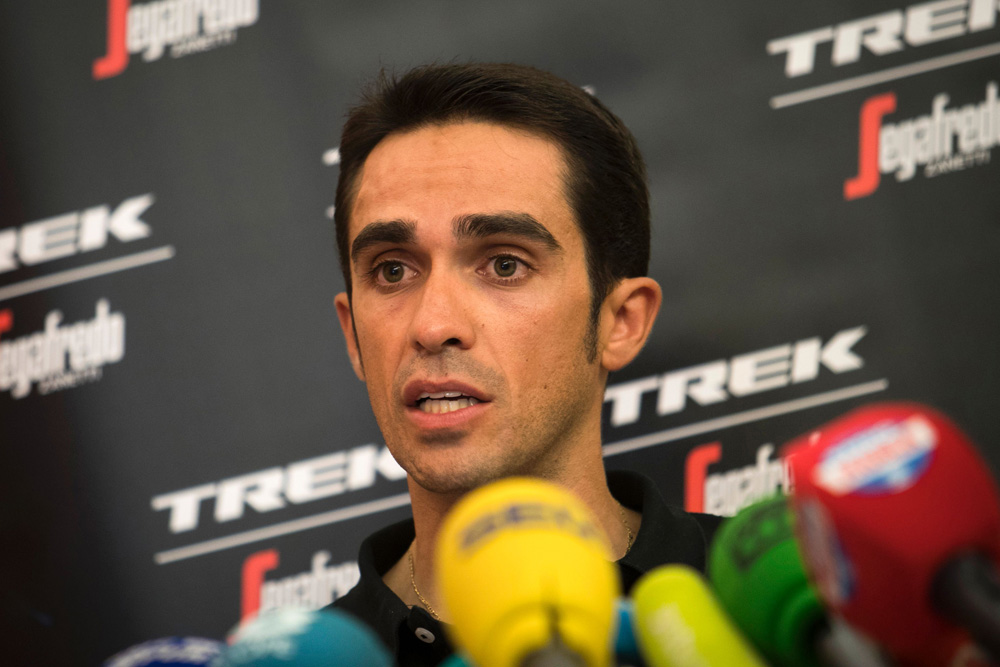
From his Paris hotel room Alberto Contador gazes down at the city below him. He watches as the vibrancy of a Monday morning rush hour plays out below, the faint hum of the traffic the only sound. Away with his thoughts, he fails to hear the first knock at his door. The second rat-a-tat-tat brings him back to reality and as he strides to the door, legs full of that familiar ache from racing three weeks across France, he knows how the conversation is going to play out. When he opens the door and sees his team manager Luca Guercilena the Spaniard raises an almost apologetic smile. That's all Guercilena needs and in a Mecure hotel room, the morning after the Tour's conclusion Contador confirms, unequivocally, his retirement.
What led Contador to the decision of hanging up his wheels at 34 years of age can be traced back several months, a year in fact, to the moment he signed on the dotted line with Guercilena and Trek-Segafredo. The Spaniard agreed terms during the 2016 Tour de France, inking a one-year deal. There was the option of second year – at the same rate – should both rider and team be satisfied with the first twelve months of their relationship, and until this summer it looked as though the collaboration would continue into 2018. However, the mere fact that Contador agreed to a twelve-month contract hinted that retirement wasn't completely out of the picture back in 2016.
Come this year and Contador was at his attacking best in the early months. He backed up second overall in the Ruta del Sol with runner-up positions in Paris-Nice, Volta a Catalunya and Pais Basque. So confident were Trek that Contador was the right man for 2018 that the management only made lukewarm attempts in the transfer market during the spring.
They heard from agents concerning Fabio Aru, Dan Martin and approached Geraint Thomas [he represents himself – ed.] but moved into June fully backing Contador.
What changed?
In his pre-Vuelta press conference, Contador admitted that after stage 9 of the Tour de France to Chambery he awoke to the realisation that he was past his best. He had crashed twice during the stage, lost a chunk of time and had been outfought by his GC rivals. In fact, at no point during the entire Tour did the former winner look like a genuine contender.
After the Chambery stage negotiations with Trek had been set for the following day – the first rest-day of the Tour de France – with a number of publications predicting that, despite his Tour travails, Contador would offer Trek a boost by re-signing for 2018. Instead, Contador informed Guercilena for the first time that he was considering retirement. According to a source close to the rider, Contador even instructed his boss to head back into the market and look for a replacement for the upcoming season. Those words were kept hidden from the public, with Contador and Trek insisting that negotiations would resume after the Tour and that the team were fully focused on rescuing their race.
Get The Leadout Newsletter
The latest race content, interviews, features, reviews and expert buying guides, direct to your inbox!
"We were working on the contract and how to manage the 2018 season, but between me and Alberto talking it was clear that he wasn't super confident in our discussions," Guercilena tells Cyclingnews.
"He wanted to concentrate on the results and his focus wasn't on talking about money and contracts. So we held off on the negotiations. It wouldn't have been fair to put more pressure on him when he was riding the Tour.
"For me, him considering retirement was a general feeling that he had. I was talking with his brother but we kept the discussion on the side until the Tour de France finished. All Alberto told me during the race was that he was thinking about the future and his options. He wasn't confirming or denying things but he clearly had feelings."
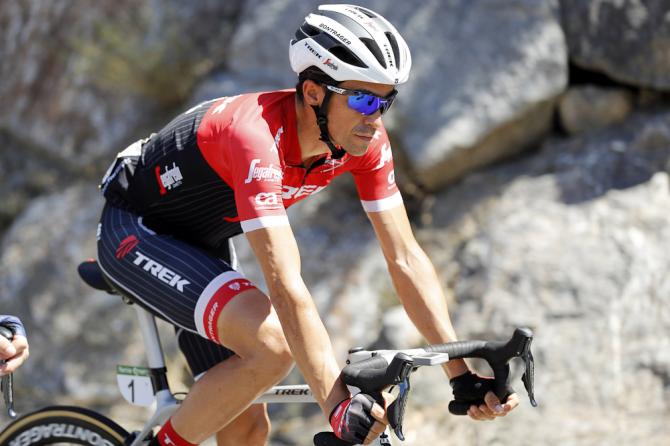
Contador's words put Guercilena in a slightly awkward position. Although UCI protocol dictates that riders cannot sign with new teams until August 1 the reality is that agreements – at least for the biggest names – are made months before that. Agents have their riders sign what are loosely termed 'letters of intent' instead of official contracts, so when Guercilena returned to the market, the Aru and Landa ships had already sailed, while Dan Martin was looking for €2 million and change and Rigoberto Uran wanted to wait until after the Tour. Nairo Quintana had been thrown around as a possible target but when his agent confirmed that the Colombian would honour his Movistar deal, Guercilena was forced to wait.
There were rumours during the Tour that it was Trek rather than Contador who had cold feet over a contract extension and that the team were actively shopping for a replacement. Guercilena denied any such activity on the part of the team.
"If I didn't want to renew him then I would have been on the market in May and just gone for one big name and turned what I would have paid Alberto to that guy," he says.
The fact was that despite not winning a race all season, and despite his failing Tour bid, Contador was, and is, a box office name within the sport. Trek's ambition in sponsoring a team is to encourage fans to buy bikes, and few riders in the peloton generate as much press or excitement as Contador. The stage into Foix was one of Trek's best all season when it came to media exposure and press, and Contador 'only' finished third.
Trek had also looked to appease Contador with a programme built around the Giro. Steven de Jongh jumped the gun mid-Tour and announced that the rider would be on the start line next May and there were genuine talks around racing the Giro and then stopping.
"That could have been a solution but we didn't get to discussing the calendar. It was more about his desire on whether he wanted to ride in 2018 or not," Guercilena says.
On the Tour de France's second rest day, Guercilena got the same response from Contador as he had a week earlier.
"I wasn't shocked. I know his value and in my mind, I wanted to carry on working with him. Then my second thought was to look at the roster and discuss things with the sponsors. I can't say that I was shocked. This is all part of the game but we had to keep calm in that situation because if we'd panicked in the market then it would have been easy to make mistakes.
"For me his decision started at La Planche des Belles Filles. He was super fit but he could see that he wasn't competitive enough to win anymore. Then maybe that was a small piece of the puzzle. He then went all in to get a good result, and we appreciated that, but by the end of the Tour all the pieces were in and the puzzle was complete."
With all the pieces filled in and a respectable, yet disappointing, ninth place at the Tour secured, Guercilena found himself outside Contador's hotel room the morning after Paris. The conversation was brief but amicable. Contador wanted to retire and his mind was made up. He would race the Vuelta a Espana as his swansong and the two men shook hands and parted amicably.
"It wasn't a physical matter because I still think that he's got the power to be competitive everywhere," the Italian team boss says. "But as with all champions there's a lot of pressure right from the start and that's the same every year. He's still competitive but after many years at the top, with all that pressure, he probably started to think about the second phase of his life."
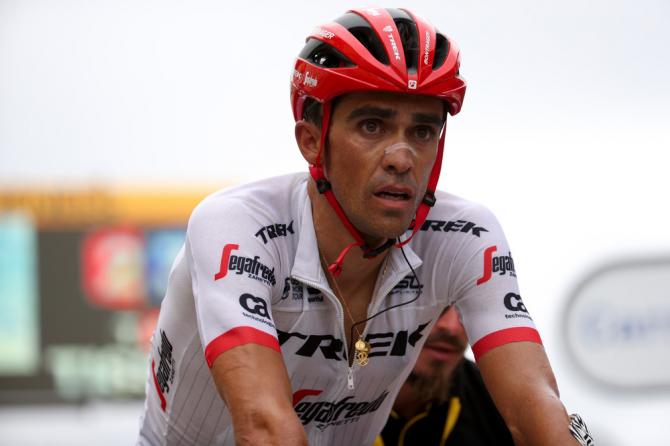
Radio silence
After the Tour de France, Contador took a well-earned break from racing and the media. He had already talked about racing the Vuelta but Trek were reluctant to talk too much about the rider's future. When contacted by Cyclingnews, Guercilena ruled out talk of retirement and stated that he and Contador would have further talks in early August. The truth was that Contador's mind had been made up and that the pair were only meeting to discuss the timing of Contador's announcement and his goals for the upcoming Vuelta.
"The plan was that he was going to carry on into 2018 and we were working towards that but it's the rider who decides when they want to quit," Guercilena says.
The recent Colorado Classic saw Guercilena head to the US and sit down with Trek for talks. With the saving in salary space from Contador's retirement, the team had wiggle room when it came to new recruits for 2018. The problem was that the shelves were almost empty in terms of GC contenders.
"Who is left on the market? There's no point just throwing money into the market. It makes more sense to work with the riders that we have and then in 2019 look to make the team stronger. The money we save this year, we'll invest next year," Guercilena says.
"Losing Alberto meant that there was a wish to replace him with a big rider but the decision on retirement came late in July, and the riders we wanted to look at were already fixed with other teams. We're still looking at possibilities that might come out from the Vuelta."
Despite losing Contador the team head into 2018 with a robust squad. More can be gained from the likes of John Degenkolb and Jasper Stuyven, while Jarlinson Pantano is a work in progress and Bauke Mollema is a dependable asset. Come next Spring, however, Guercilena will have the capacity and budget to sign almost anyone on the market.
Daniel Benson was the Editor in Chief at Cyclingnews.com between 2008 and 2022. Based in the UK, he joined the Cyclingnews team in 2008 as the site's first UK-based Managing Editor. In that time, he reported on over a dozen editions of the Tour de France, several World Championships, the Tour Down Under, Spring Classics, and the London 2012 Olympic Games. With the help of the excellent editorial team, he ran the coverage on Cyclingnews and has interviewed leading figures in the sport including UCI Presidents and Tour de France winners.
